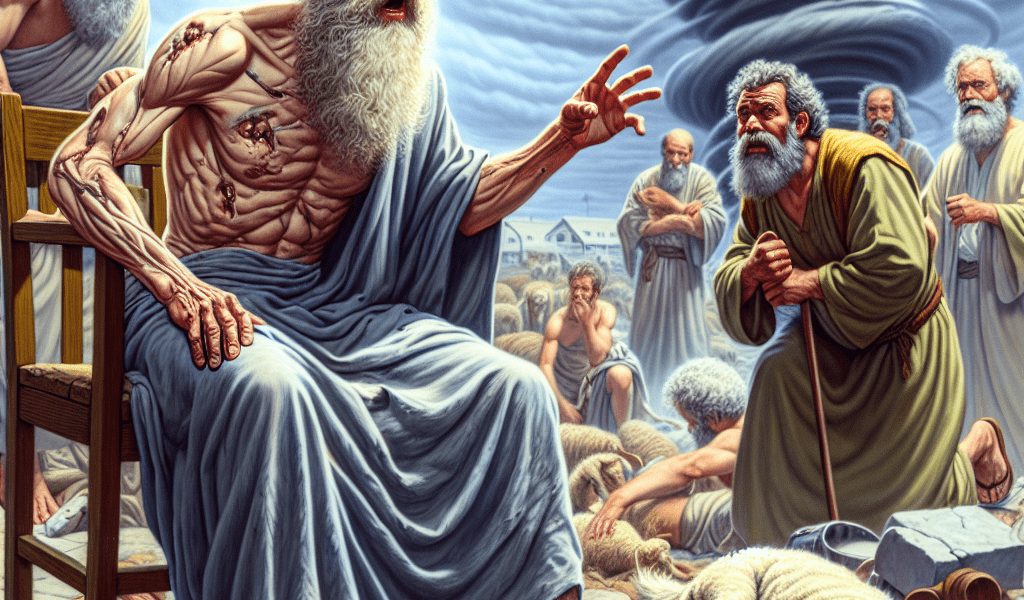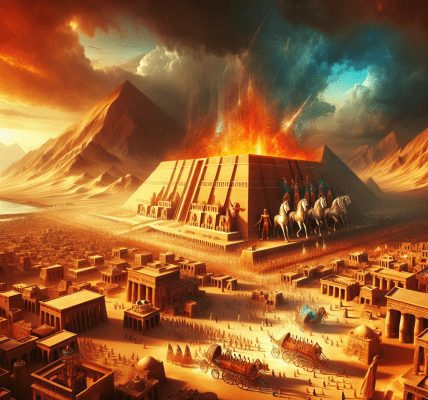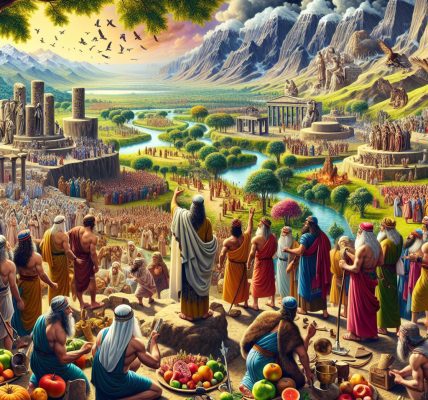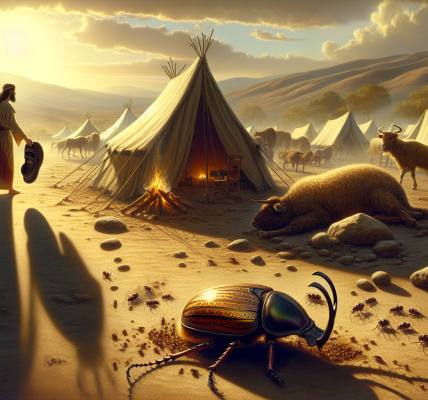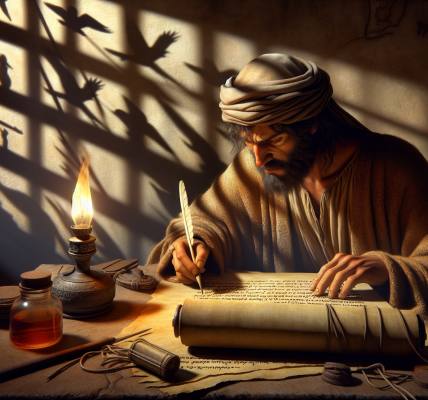Once upon a time, we find Job in the land of Uz. God-fearing and righteous, he was a wealthy man with a prosperous family. However, calamities came upon him; his livestock were all seized or destroyed, his children killed by natural disasters, and his health severely compromised. He was reduced to a pitiful state. Job’s faith was put to the test as he questioned God’s justice amid this suffering. His friends too assumed that Job was being punished for some sin he must have committed. And throughout this ordeal, Job maintained his integrity, but his spirit was troubled.
In the midst of all this calamity stood Jehovah, who answered Job out of a whirlwind. Speaking in a voice as mighty as thunder and a presence as fierce as a storm, Jehovah presented a series of rhetorical questions, probing and poignant, aimed at Job’s understanding of the world and his own small place in it.
Jehovah asked Job about the foundations of the earth, asking where he was when they were laid and who measured their dimensions. This line of questioning aimed to exhibit the vastness of the divine Creator’s knowledge, leaving Job speechless, unable to answer.
Through poetic language, Jehovah painted a picture of the earth’s creation, when the morning stars sang and the sons of God shouted for joy. He recounted limiting the sea’s boundaries and embellishing it with clouds and darkness, an image so grand in scale that it dwarfed Job’s human understanding.
He questioned Job further on the mysteries of the universe that humans cannot comprehend or control. The springs of the sea, the gates of death, the breadth of the earth, the dwelling of light, all these cosmic phenomena remained opaque to Job, underlining his limited human knowledge and understanding.
God spoke with such lofty sarcasm, only He knows the treasures of snow and hail that are reserved against times of strife. Only He can direct the lights of the universe, or command the morning to appear and shake the wicked from the earth. God prompted Job to ponder on the marvels of nature and His heavenly creation. The Pleiades, Orion, and Mazzaroth are but constellations in the sky, yet God asked Job if he had the capability to bind or loose their clustering stars, tune their seasons, or harness them in their path emphasizing His dominion and Job’s ignorance.
God asked Job if he could control rain, lightning, or wild animals, or who gives wisdom and understanding to the mind, portraying the intricate balance in nature that remains beyond human comprehension. Whether it was satisfying the appetite of young lions or providing for the scavenging ravens, God showed Job the nature’s complexity and wisdom involved in its management.
In all these divine dialogues, Jehovah successfully painted a picture of the staggering scope of His creations, operations, wisdom, and power, thereby revealing the insignificance of mankind’s understanding. He pointed out that human wisdom and perception, regardless of how profound, is still bound by its limitations and could not compare to the boundless wisdom and power of Divine Creator. According to this divine interrogation, we observe Job’s growing realization of his insignificance in the grandeur scheme of the cosmos.
This confrontation leaves a grand impact on Job, and he repents, saying, “I know that thou canst do every [thing]. Therefore, I have uttered that I understood not; things too wonderful for me, which I knew not. Hear, I beseech thee. and I will speak: I will demand of thee, and declare thou unto me. I have heard of thee by the hearing of the ear: but now mine eye seeth thee. Wherefore I abhor [myself], and repent in dust and ashes.”
Thus, Jehovah’s dialogue from the whirlwind makes Job realize his place and limitations. He becomes aware that the God who can control the cosmos, the God who leads forth the Mazzaroth, manages the rains, and feeds the cubs of the lioness, can indeed be trusted to have a pattern in his suffering and manage his life well. The story concludes with Job regaining his losses and living on for another 140 years, observing four generations of his progeny, reinforcing God’s ultimate justice and benevolence.
